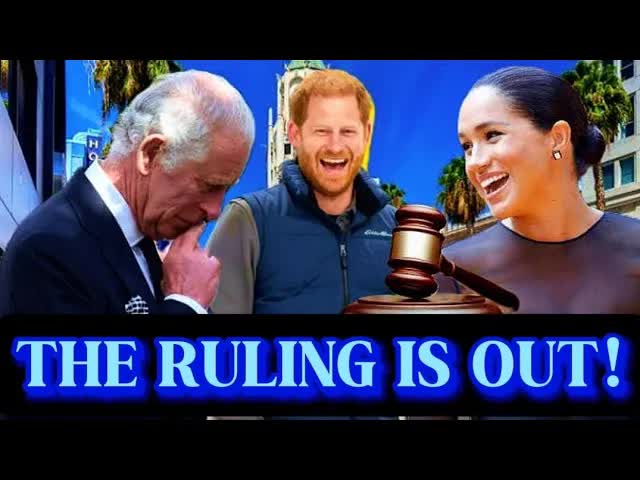In a significant legal victory for Prince Harry, a judge in the United States has ruled that his visa records will remain confidential.
This decision not only bolsters Harry’s personal privacy but also raises critical questions about the broader implications of privacy rights in today’s society.
The case originated when the Heritage Foundation, a conservative think tank, sought access to Harry’s immigration documents, claiming it was necessary for national security.
However, the judge dismissed this argument, stating that the foundation failed to provide adequate justification for their request.
This ruling marks a pivotal moment in the ongoing conversation about individual privacy and the extent to which personal information should be protected from public scrutiny.
The Department of Homeland Security (DHS) played an essential role in this legal battle, advocating against the release of Harry’s visa records.
The DHS emphasized the importance of safeguarding personal data, arguing that disclosing such information could set a dangerous precedent for future cases.
Their stance highlighted the need for strict boundaries around what constitutes a legitimate request for personal information.
Moreover, the judge concurred with the DHS’s argument that the Heritage Foundation’s request was overly broad and lacked specificity.
This decision reinforces the notion that individuals have a right to privacy, even when they are public figures.
The ruling serves as a reminder that protecting personal information is crucial in an age where data breaches and unauthorized access are rampant.
The motivations behind the Heritage Foundation’s request have also come under scrutiny.
Critics suggest that the organization may have targeted Prince Harry due to his vocal opposition to certain U.S. policies, raising suspicions about their true intentions.
The timing of the request, coming shortly after Harry made critical remarks, has led many to believe that the foundation aimed to stifle his dissenting voice.
This case underscores the potential for powerful entities to exploit personal information for political or ideological purposes.
It highlights the necessity of defending individuals from such tactics, ensuring that privacy remains a fundamental right for all, regardless of their public status.
The judge’s ruling is not just a win for Harry; it reaffirms the principle that everyone is entitled to privacy.
In our digital era, where personal data can be easily accessed and misused, this decision sends a strong message about the importance of protecting individual rights.
It emphasizes that privacy is not merely a privilege reserved for the elite but a basic human right that must be upheld.
As technology continues to evolve, the collection and analysis of personal data are becoming increasingly pervasive.
While some data gathering can enhance user experiences, it also raises significant concerns regarding who accesses this information and how it is utilized.
The ruling serves as a timely reminder of the need for robust data protection laws that safeguard individuals from unauthorized intrusion.
The balance between public interest and personal privacy remains a contentious issue.
Public figures like Prince Harry often find themselves in a constant struggle between their right to a private life and the public’s desire for transparency.
This case illustrates the ongoing challenge of delineating what constitutes legitimate public interest versus invasive scrutiny.
Fame may come with its perks, but it also brings significant challenges, particularly regarding privacy.
The relentless pursuit by media and paparazzi can lead to adverse effects on mental health and overall well-being.
The ruling in Harry’s case calls for a reevaluation of how society perceives the balance between the public’s curiosity and the individual’s right to privacy.
Looking ahead, the legacy of this ruling could have far-reaching consequences for privacy rights in the digital age.
It sets a precedent that could influence future cases involving public figures and their personal information.
As society grapples with the complexities of data privacy, the importance of strong legal protections cannot be overstated.
While the spotlight may shine brightly on Prince Harry, the implications of this case extend far beyond his individual circumstances.
It serves as a clarion call for stronger privacy laws that protect all individuals, not just the famous or affluent.
Ultimately, the fight for privacy is a collective endeavor, one that requires vigilance and advocacy from everyone.
